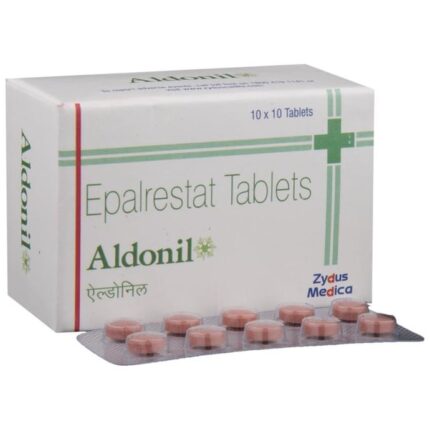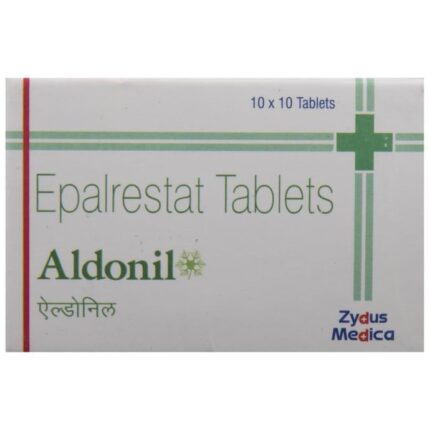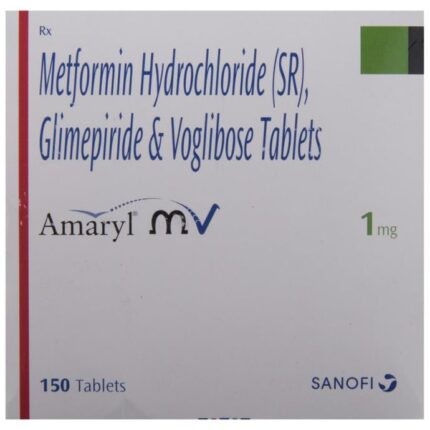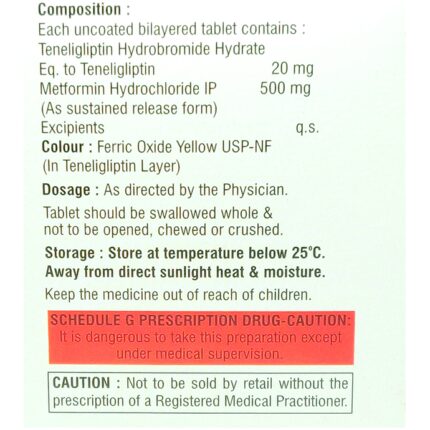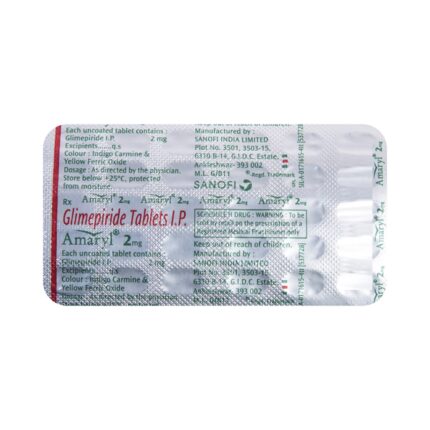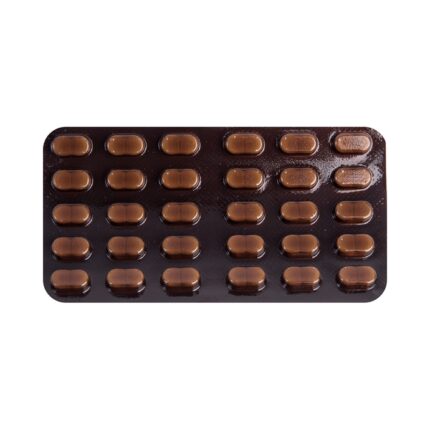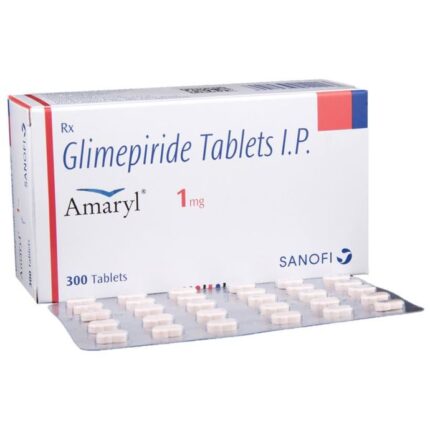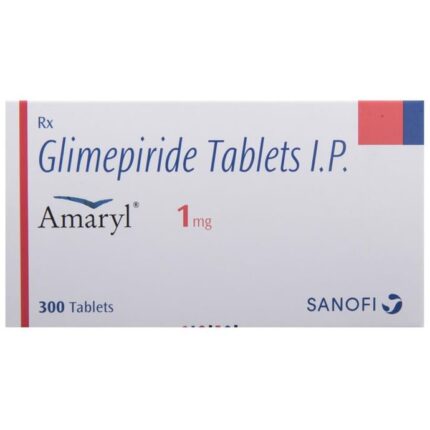DESCRIPTION
Apidra 100IU Cartridge is used to improve blood sugar control in people with type 1 and type 2 diabetes mellitus. It is a fast-acting type of insulin that helps to lower blood sugar levels after meals and reduce the chances of developing serious complications of diabetes. Apidra 100IU Cartridge is normally prescribed along with a long-acting type of insulin or other diabetes medicines. Your doctor or nurse will teach you the correct way of injecting it under the skin. It should be taken 15 minutes before a meal or within 20 minutes after starting a meal. Do not stop taking it unless your doctor tells you to. It is only part of a treatment program that should also include a healthy diet, regular exercise, and weight reduction as advised by your doctor. Check your blood sugar levels regularly, keep track of your results and share them with your doctor. This is very important to work out the correct dose of the medicine for you. The most common side effects of this medicine include hypoglycemia, allergic reactions, injection site reactions, lipodystrophy, itching, and rash. To prevent these, it is important to always inject the correct dose of medicine, have regular meals (do not skip), and monitor your blood sugar levels regularly. Do not use this medicine when you have low blood sugar levels (hypoglycemia). Tell your doctor if you have ever had kidney, liver, or heart problems before starting treatment. Pregnant or breastfeeding women should consult their doctor before using it.
INTRODUCTION
In Diabetes Apidra 100IU Cartridge is a modern, rapid-acting form of insulin that helps to control high blood glucose (sugar) levels. It replaces the insulin that is normally produced in the body. This helps the glucose get into your cells so your body can use it for energy. It begins to lower your blood glucose level within 10-20 minutes of injecting it and the effect can last for 3-5 hours. You will need to learn exactly how, where, and when to inject this medicine for it to be most effective. Lowering blood glucose levels helps reduce the risk of getting any of the serious complications of diabetes such as kidney damage, eye damage, nerve problems, and loss of limbs. Taking this medicine regularly along with proper diet and exercise will help you live a normal, healthy life.
USE OF
Diabetes
BENEFITS
Your doctor or nurse will guide you how to use this medicine.
FACTBOX
Chemical Class::Insulin analogue|Habit Forming::No|Therapeutic Class::ANTI DIABETIC|Action Class::Insulin analogues- rapid acting
HOW TO USE
Apidra 100IU Cartridge is fast-acting insulin which starts working within 10-20 minutes after injecting. It works similar to the insulin produced by the body. Insulin facilitates reuptake of glucose in muscle and fat cells and also blocks the release of glucose from the liver.
SAFETY ADVICE
– Alcohol : UNSAFE – It is unsafe to consume alcohol with Apidra 100IU Cartridge. – Pregnancy : SAFE IF PRESCRIBED – Apidra 100IU Cartridge is generally considered safe to use during pregnancy. Animal studies have shown low or no adverse effects to the developing baby; however, there are limited human studies. – Breast feeding : CONSULT YOUR DOCTOR – Information regarding the use of Apidra 100IU Cartridge during breastfeeding is not available. Please consult your doctor. – Driving : CAUTION – Your ability to drive may be affected if your blood sugar is too low or too high. Do not drive if these symptoms occur. – Kidney : CAUTION – Apidra 100IU Cartridge should be used with caution in patients with kidney disease. Dose adjustment of Apidra 100IU Cartridge may be needed. Please consult your doctor. Regular monitoring of blood glucose levels is recommended for dose adjustment. – Liver : CAUTION – Apidra 100IU Cartridge should be used with caution in patients with liver disease. Dose adjustment of Apidra 100IU Cartridge may be needed. Please consult your doctor. Frequent and regular monitoring of blood glucose levels is advised.
IF MISS
If you have missed a dose of Apidra 100IU Cartridge, your blood sugar level may become too high (hyperglycemia). Check your blood sugar and then take the next dose accordingly.
COMMON SIDE EFFECT
Nasopharyngitis (inflammation of the throat and nasal passages) | Upper respiratory tract infection
ALCOHOL INTERACTION
UNSAFE
PREGNANCY INTERACTION
SAFE IF PRESCRIBED
LACTATION INTERACTION
CONSULT YOUR DOCTOR
KIDNEY INTERACTION
CAUTION
LIVER INTERACTION
CAUTION
VIEWS
BOUGHT
846 people bought this recently
FAQ
Q. I am taking pioglitazone for diabetes. Can I take Apidra 100IU Cartridge with it?::: You have to be extra careful if you are planning to take both pioglitazone and Apidra 100IU Cartridge. Consult your doctor first before taking any other medicine. The doctor will suggest if you can safely take Apidra with pioglitazone and if you would need regular follow-up. This is because Pioglitazone can cause fluid retention in your body, especially when used in combination with insulin. You may develop symptoms of heart failure like edema, swelling of hands and feet, weight gain, breathlessness, etc. Also if you already have heart failure, it may get aggravated. | Q. I started using Apidra 100IU Cartridge recently and was told to not inject into the same spot over and over again. Why?::: It is correct that you should not use the same spot again, as it can cause changes in the fatty tissue just under the skin. It can either cause lipodystrophy or lipohypertrophy. Lipodystrophy means abnormal changes in the distribution of body fat. It includes lipohypertrophy (thickening of adipose tissue) and lipoatrophy (thinning of adipose tissue), and may affect insulin absorption. Rotate insulin injection or infusion sites within the same region to reduce the risk of lipodystrophy.| Q. What if I accidentally inject Apidra 100IU Cartridge into a muscle?::: Apidra 100IU Cartridge contains a fast-acting insulin. Injecting Apidra into a muscle would make its absorption even more rapid. As a result, the chance of having a serious episode of hypoglycemia or low blood sugar would increase. Therefore, you should inject the insulin just beneath the skin by pinching up some skin and fat. | Q. I have been taking metoprolol for high blood pressure for a long time. Do I need to be careful about anything if I have started glulisine now?::: Yes, you need to be careful because symptoms of low blood sugar (hypoglycemia) like increased heart rate may not be noticed by you. Keep a regular check on your blood sugar and consult your doctor if the problem persists.| Q. Can Apidra 100IU Cartridge be stopped once started?::: It depends on whether you have type I diabetes mellitus (body does not produce insulin) or type II (body does not respond to insulin). For patients with type I external source of insulin is the only treatment available which cannot be stopped, as your body does not produce sufficient insulin. But for patients with type II diabetes mellitus, the doctor may stop Apidra if your blood sugar levels are well controlled with exercise, healthy diet and other diabetes pills. However, do not stop taking it on your own without consulting your doctor as it may worsen your condition.| Q. Can Apidra 100IU Cartridge cause hypoglycemia?::: Yes, Apidra 100IU Cartridge can cause hypoglycemia (low blood sugar levels). Symptoms of hypoglycemia include nausea, headache, irritability, hunger, sweating, dizziness, fast heart rate and feeling anxious or shaky. It happens more often if you miss or delay your food, drink alcohol, over-exercise or take other antidiabetic medicine along with it. So, regular monitoring of the blood sugar level is important. Always carry some sugary candies, glucose, glucon-D or fruit juice with you.| Q. What class of drug is Apidra 100IU Cartridge?::: Apidra 100IU Cartridge belongs to the class of antidiabetic medications. It is a man-made version of insulin which is prescribed in diabetic adults and children of age 1 year and above. This medicine is used to help improve blood sugar levels and glycemic control.
DISCLAIMER
The Contents of this website & medicine description are for informational purposes only and are not intended to be a substitute for professional medical advice, diagnosis, treatment, or prevention of a disease or medical condition. Please consult a physician or doctor for the treatment and/or management of any disease or medicalconditioin without delay.








